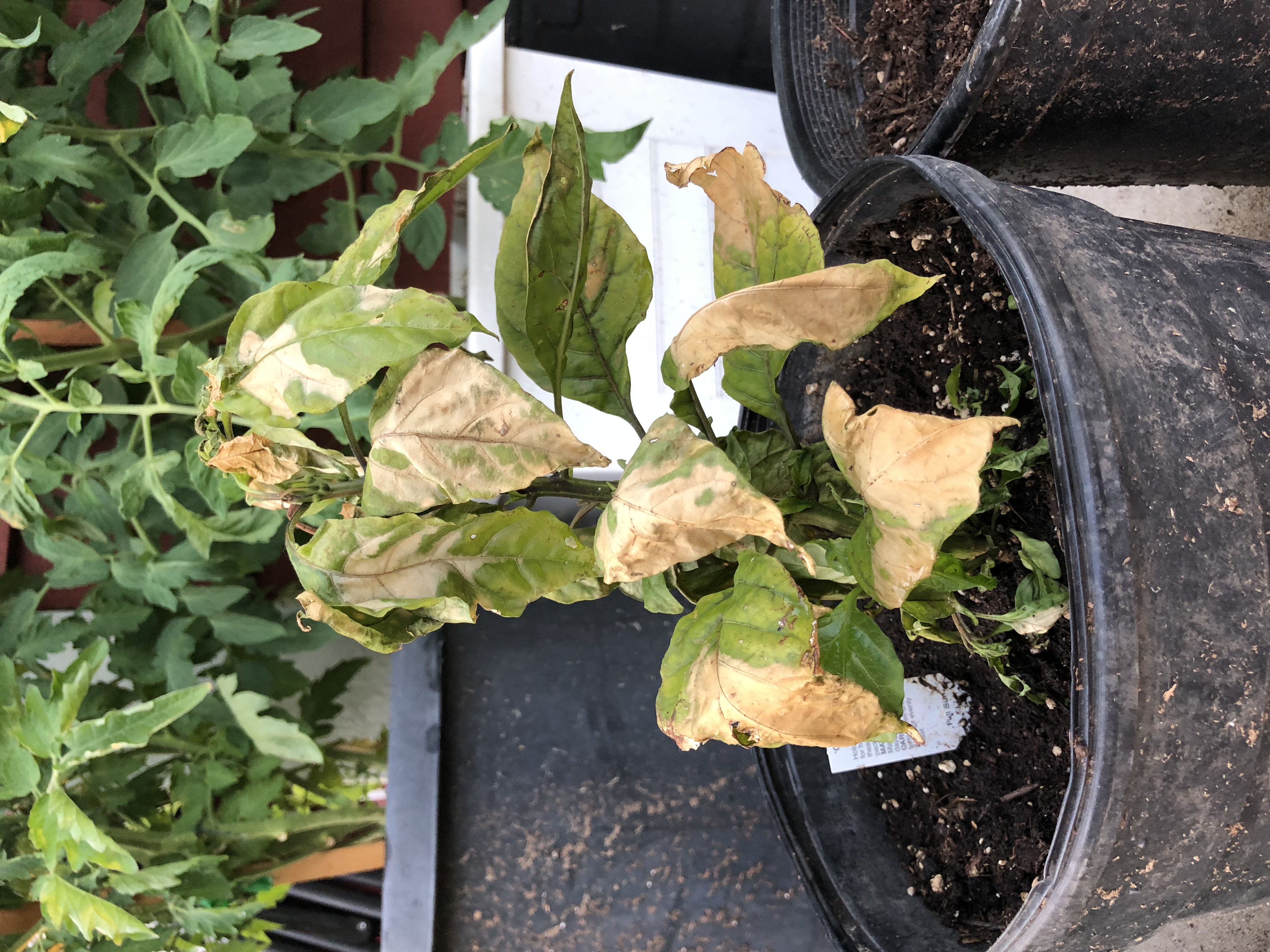Best Fertilizers for Peppers: A Comprehensive Guide to Boost Your Harvest
Best Fertilizers for Peppers: A Comprehensive Guide to Boost Your Harvest
Blog Article
Organic Vs. Synthetic Fertilizers: Which Is Best for Nurturing Healthy Pepper Plants?
In the realm of supporting healthy and balanced pepper plants, the selection in between natural and synthetic fertilizers stands as a crucial choice with far-ranging ramifications. While both choices goal to supply necessary nutrients to sustain plant development, the nuances of their impact on the soil, plant wellness, and the setting trigger a dispute that echoes throughout the gardening area. Recognizing the distinctive benefits and potential mistakes of each plant food type is critical for pepper growers seeking to optimize their yields while maintaining a lasting and eco-conscious approach.
Benefits of Organic Fertilizers
Organic plant foods use a lasting and environmentally-friendly strategy to beneficial pepper plants, offering important nutrients without using synthetic chemicals. These all-natural fertilizers are originated from organic resources such as compost, manure, bone dish, and algae, advertising soil health and biodiversity. Unlike synthetic plant foods, organic alternatives release nutrients slowly, ensuring a well balanced and consistent supply for pepper plants to thrive.
One significant advantage of natural fertilizers is their capability to improve soil framework and water retention. By improving dirt health, natural fertilizers promote valuable microbial activity, which helps in nutrient uptake by pepper plants. In addition, organic fertilizers minimize the risk of chemical run-off, securing water resources from pollution and securing the environment.
Additionally, natural plant foods add to long-lasting soil fertility by advertising the development of useful dirt microorganisms. These organisms assist damage down raw material, releasing nutrients in a kind that is easily available to pepper plants. best fertilizers for peppers. By fostering a healthy dirt ecological community, organic fertilizers support sustainable pepper farming techniques that benefit both plants and the atmosphere
Disadvantages of Artificial Fertilizers
Artificial plant foods, in comparison to their natural equivalents, present different drawbacks when utilized to nourish pepper plants, impacting both plant health and environmental sustainability. One major drawback of synthetic fertilizers is their tendency to leach nutrients from the dirt quickly.
Additionally, the overuse of synthetic plant foods can add to water pollution. Excess fertilizers not taken in by plants can remove into water bodies, resulting in eutrophication, where algae blooms diminish oxygen degrees in the water, harming marine life. Additionally, synthetic fertilizers are typically originated from non-renewable sources, such as nonrenewable fuel sources, adding to carbon discharges and ecological deterioration throughout their production.
Nutrient Absorption Comparison
Reliable nutrient absorption plays an essential duty in the overall wellness and growth of pepper plants. When comparing artificial and natural fertilizers in regards to nutrient absorption, organic plant foods have the benefit of supplying a more balanced and slow-release resource of nutrients (best fertilizers for peppers). Organic fertilizers include a selection of macro and micronutrients that are not only valuable for the plants but likewise advertise healthy soil microbial task, which assists in nutrient uptake. On the other hand, synthetic plant foods usually offer a Source fast launch of nutrients, which can bring about leaching and runoff, causing lower nutrient absorption prices by the plants.
Moreover, natural plant foods enhance dirt framework and water retention ability, permitting pepper plants to accessibility nutrients more effectively. This better dirt high quality assists in origin advancement, making it possible for far better nutrient absorption. Artificial plant foods, although at first improving plant development as a result of their high nutrient focus, might impede long-lasting nutrient absorption by degrading soil health in time.
Environmental Impact Considerations

On the other hand, artificial plant foods, although typically more promptly offered and concentrated to plants, can have destructive impacts on the environment otherwise applied effectively (best fertilizers for peppers). Their production calls for high energy inputs, leading to greenhouse gas emissions and adding to environment change. The drainage of excess synthetic plant foods can infect water sources, leading to eutrophication and hurting marine communities.
Best Plant Food Practices for Peppers
To attain this, it is crucial to follow best fertilizer practices customized to the details needs of pepper plants. One crucial practice is to perform a soil examination prior to using any type of fertilizers.
One more essential practice is to fertilize pepper plants at the correct time. Generally, peppers benefit from receiving fertilizer at growing and after that once again when they start to flower. Over-fertilizing can lead to nutrient imbalances and damage the plants, so it is essential to adhere to advised application prices.
Additionally, selecting a well balanced plant food with an NPK ratio that matches pepper plants' requirements is basic. Eventually, combining organic and artificial fertilizers carefully can help nurture healthy and balanced pepper plants while reducing ecological effect.
Verdict

Organic fertilizers use a lasting and environmentally-friendly technique to beneficial pepper plants, providing necessary nutrients without the usage of synthetic chemicals. Unlike synthetic plant foods, natural options launch nutrients gradually, guaranteeing a balanced and stable supply for pepper plants to prosper.
Artificial fertilizers, in contrast to their organic equivalents, posture various drawbacks when made use of to nurture pepper plants, impacting both plant wellness and environmental description sustainability. When comparing artificial and natural plant foods in terms of nutrient absorption, natural fertilizers have the advantage of offering an extra well balanced and slow-release resource of nutrients.Additionally, organic fertilizers boost dirt structure and water retention ability, allowing pepper plants to access nutrients more efficiently.
Report this page